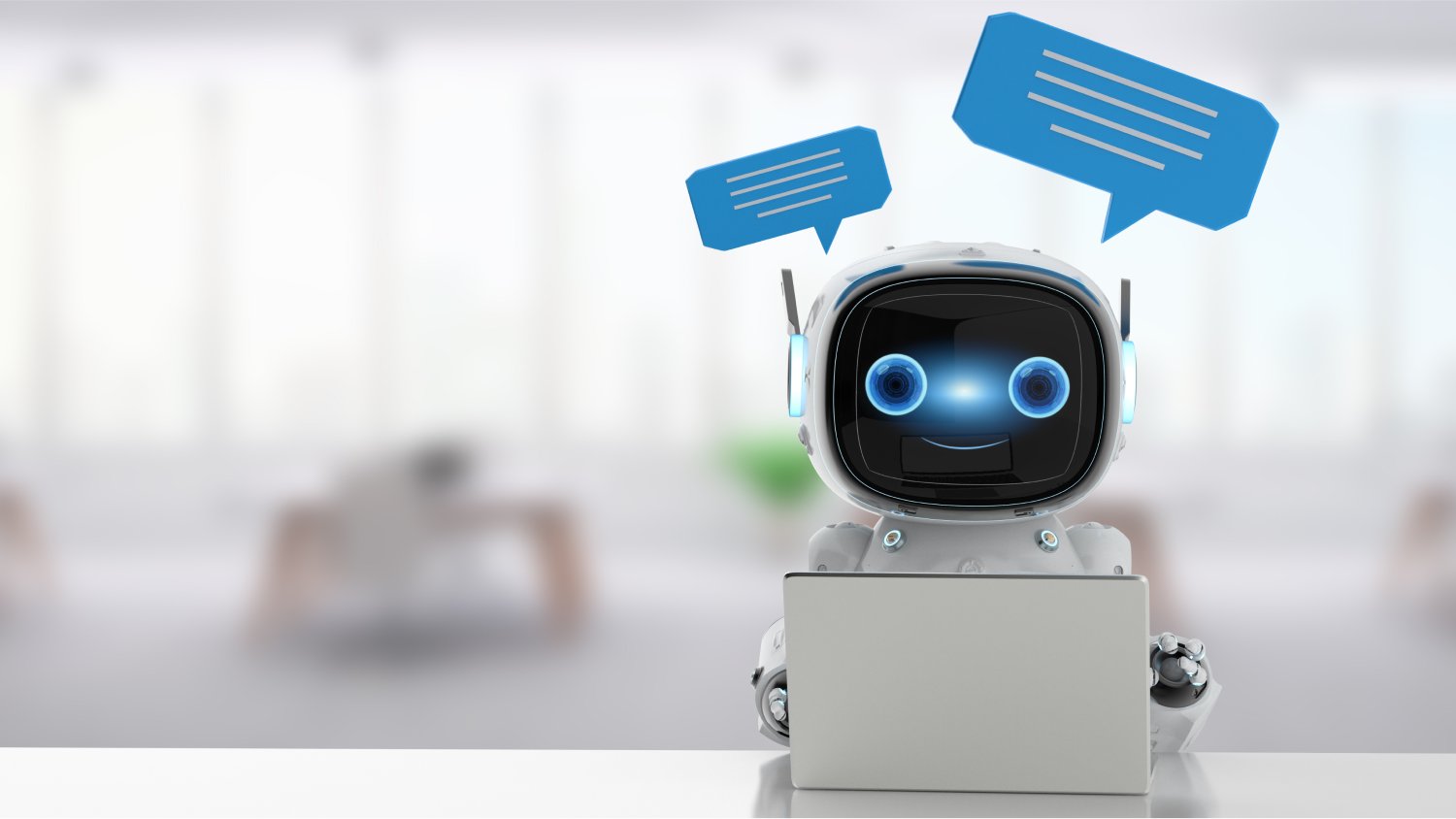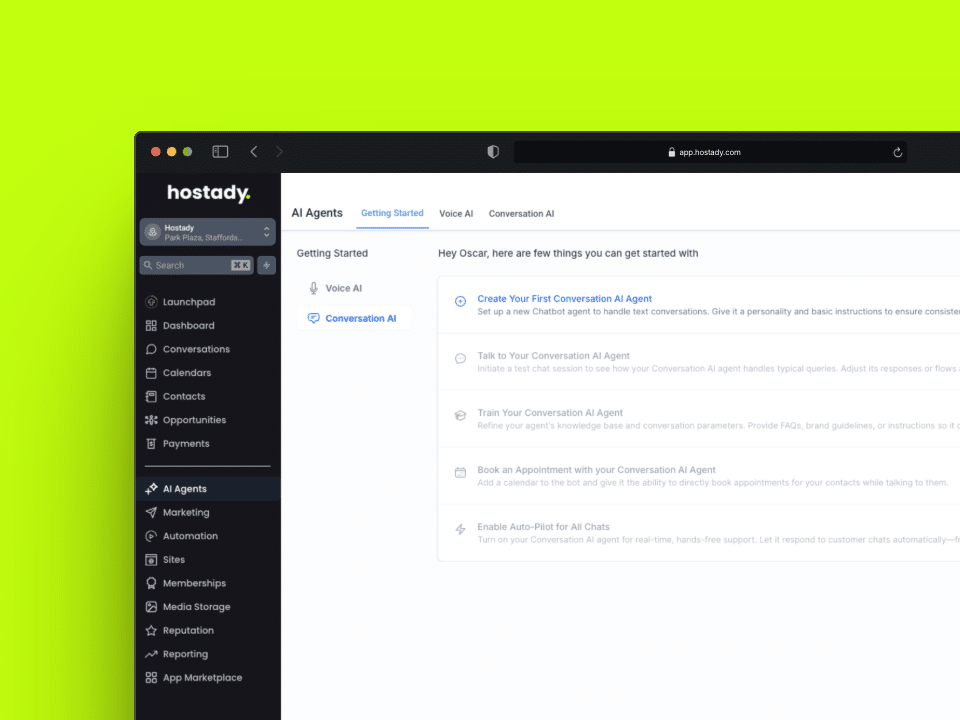AI assistant are changing how we interact with technology. They help us with tasks, making life simpler.
From reminding us about meetings to suggesting shopping items, these digital helpers are everywhere. But what exactly is an AI assistant? And how do they work? AI assistants are software programs that understand human language. They can perform tasks like setting alarms, sending messages, and answering questions.
Many people use them on smartphones, computers, and smart home devices. These assistants learn from user interactions, improving over time. They rely on complex algorithms and vast databases to provide accurate responses. AI assistants can save time, reduce workload, and enhance productivity. As technology advances, these tools become more sophisticated. Understanding how they function can help you use them effectively. Dive into the world of AI assistants and discover their potential.

Rise Of Ai Assistants
AI assistants have become essential in daily life, helping with tasks like setting reminders and answering questions. People enjoy their convenience and efficiency in managing busy schedules. These smart tools continue to evolve, making interactions smoother and more intuitive.
The rise of AI assistants is reshaping how we interact with technology, making our lives more convenient and efficient. From setting reminders to answering complex questions, AI assistants are becoming integral to both personal and professional settings. But how did we reach this point, and what does the future hold for these digital helpers?
Historical Background
AI assistants have come a long way from their humble beginnings. In the early days, they were limited to simple tasks and required detailed programming. Remember the clunky chatbots of the late 90s? They could hardly understand a conversation, let alone assist you effectively. Fast forward to the present, and AI assistants are now part of daily routines. Siri, Alexa, and Google Assistant have entered homes worldwide, each learning and adapting to user preferences. It’s fascinating to see how these tools have evolved, especially when you think about how they started as basic algorithms.
Technological Advancements
Today’s AI assistants are powered by advanced machine learning and natural language processing. This technology allows them to understand and respond to human language in a way that’s almost conversational. You can ask your assistant to book a flight, and it will not only show you options but also remind you about check-in times. Developers are continually enhancing AI capabilities. Integration with smart home devices, for instance, means you can control your lights, thermostat, and even security systems using just your voice. This development raises an interesting question: how much more will AI assistants be able to do in the next five years? AI assistants also learn from user interactions, which means they get better over time. This learning aspect is something you might notice when your assistant starts predicting your needs, like suggesting a playlist based on your mood or notifying you about traffic delays on your usual route. In considering all these advancements, one can’t help but wonder about the ethical implications. As these assistants get smarter, what measures are in place to ensure privacy and security? It’s a thought worth pondering as we continue to rely more on these digital assistants in our everyday lives.
Key Features Of Ai Assistants
AI assistants are becoming increasingly popular, offering a range of features that make our lives easier and more efficient. From handling tasks to understanding voice commands, these digital helpers are transforming how we interact with technology. Let’s dive into some of the key features that make AI assistants indispensable in today’s fast-paced world.
Voice Recognition
Voice recognition is a game-changer for AI assistants. Imagine coming home after a long day and simply saying, “Turn on the lights,” or “Play my favorite playlist,” and your assistant does it instantly. It’s like having your personal genie, without the magic lamp.
This feature isn’t just about convenience. It’s about accessibility. Voice recognition allows those with disabilities to interact with technology in ways that were previously impossible. How often do you use voice commands on your phone or smart speaker? Perhaps more than you realize.
Task Automation
Task automation is another powerful feature of AI assistants. Whether it’s scheduling meetings, sending reminders, or managing your calendar, these assistants can handle it all. Think about the time you save when your AI assistant sends a follow-up email while you focus on more important tasks.
Automation is not just for work. It helps you keep track of personal tasks too. Imagine getting a reminder to buy groceries or a notification about your favorite TV show. Automation allows you to prioritize what truly matters without worrying about mundane tasks. Are you ready to let AI take over some of your daily duties?
AI assistants are no longer a futuristic concept; they are here to simplify your life. By embracing these features, you can make your everyday tasks more manageable and focus on what truly matters. How has AI already changed the way you live or work?
Impact On Workplace Efficiency
Artificial Intelligence (AI) Assistants are changing workplace efficiency. These smart tools help employees save time and energy. They handle repetitive tasks, allowing staff to focus on important work. This boosts productivity and enhances job satisfaction.
Streamlining Communication
AI Assistants improve communication among team members. They organize emails and messages for easy access. You can quickly find information without wasting time. These tools translate languages, helping global teams communicate easily. They reduce misunderstandings and ensure clear conversations.
Scheduling And Time Management
AI Assistants simplify scheduling tasks. They manage calendars and set reminders efficiently. You never miss important meetings or deadlines. These tools analyze your schedule, suggesting optimal times for activities. They help prioritize tasks, making your day more productive.

Credit: www.cisco.com
Enhancing Personal Productivity
AI assistants help people boost their productivity. They help with everyday tasks. They make setting and tracking goals easier. Using AI can change how you manage time.
AI tools can fit into your daily schedule. They help you focus on what matters. Let’s explore how AI assistants help improve personal productivity.
Daily Task Management
AI assistants help you organize daily tasks. They create to-do lists. Prioritizing tasks becomes simple. AI can remind you about important tasks. You won’t miss deadlines.
They learn your habits and suggest changes. This helps improve efficiency. Managing daily tasks feels less stressful. You can focus on completing tasks.
Goal Setting And Tracking
Setting goals is crucial for personal growth. AI assistants can help with this. They allow you to set clear goals. Tracking progress becomes easy.
AI tools give feedback on your achievements. This helps keep you motivated. They suggest ways to reach your goals faster. AI assistants make goal setting simple and effective.
Ai In Smart Homes
Smart homes are not just about convenience. They are about creating a seamless living experience. AI is at the heart of this transformation. It helps manage tasks and ensures safety. This technology makes homes smarter and more efficient.
Home Automation
Imagine waking up to fresh coffee. AI assistants can automate such tasks. They control lights, appliances, and even the thermostat. You can adjust settings with simple voice commands. This makes daily routines smoother and more enjoyable.
AI learns your habits. It suggests energy-saving tips. This not only saves money but also helps the environment. Automation turns mundane tasks into effortless actions.
Security And Monitoring
AI enhances home security. It offers real-time monitoring. Smart cameras can detect unusual activity. They send instant alerts to your phone. This ensures you are always aware of your home’s safety.
AI assistants can manage security settings. They lock doors and windows when you are away. This provides peace of mind. You can trust your AI to keep your home safe. With AI, security is a priority, not a concern.

Ai Assistants In Education
AI Assistants enhance learning experiences by providing personalized support to students. They help with homework, answer questions, and offer study tips. This technology adapts to individual needs, making education more accessible and engaging.
Artificial Intelligence (AI) is changing the way we learn and teach. AI assistants in education are becoming essential tools in classrooms and online learning platforms. They offer unique ways to enhance learning experiences for students and teachers alike. ###
Learning Support Tools
AI assistants provide interactive learning support tools that cater to diverse educational needs. They can answer questions, give explanations, and even offer practice exercises. Imagine having a 24/7 tutor available to help you with math problems or to explain complex science concepts. These tools also help with language learning. You can practice pronunciation with AI voice recognition or expand your vocabulary through interactive quizzes. The potential for these tools to make learning more engaging is enormous. ###
Personalized Education Plans
Every student learns differently, and AI can help tailor education to fit individual needs. With AI assistants, personalized education plans become a reality. They analyze your strengths and weaknesses to create a custom learning path just for you. Adaptive learning platforms adjust the difficulty of tasks based on your performance. If you struggle with algebra, the AI might suggest additional resources or step-by-step guidance. This approach not only boosts confidence but also enhances understanding. Have you ever wondered why some subjects seem more challenging than others? AI can help identify your learning style and suggest strategies that work best for you. This personalized approach ensures you get the most out of your educational journey. AI assistants in education are more than just tools; they are partners in learning. By understanding and adapting to your unique needs, they make learning more effective and enjoyable. So, how do you see AI transforming your educational experience?
Challenges And Concerns
AI assistants have become a part of our daily lives. They offer many benefits but also come with challenges and concerns. Understanding these can help us use AI more wisely.
Privacy Issues
AI assistants collect data to function effectively. This data can include personal information. Users worry about who sees this data. Is it safe? How is it used? Companies must ensure data protection. They need strong security measures. Privacy policies should be clear and honest. Users deserve to know how their data is handled.
Dependence On Technology
People rely on AI assistants for many tasks. This can lead to over-dependence. What if the AI fails? Can we perform tasks without it? Relying too much can make us less self-reliant. It is important to balance technology use. We should maintain our skills and independence. Technology should assist, not replace our abilities.
Future Developments
Exciting advancements in AI assistants promise enhanced user experiences. These tools will offer more personalized help and intuitive interactions. Users can expect faster responses and improved accuracy in everyday tasks.
As we look ahead to the future of AI assistants, the possibilities seem endless. These digital helpers are evolving at an astonishing pace, promising to make our lives easier and more efficient. But what can we realistically expect in the years to come?
Innovations On The Horizon
AI assistants are poised for major upgrades. Imagine an AI that understands your emotions, predicting your needs before you even voice them. Future AI might not just answer questions but engage in meaningful conversations, making interactions more human-like. Think of a morning routine where your AI assistant not only brews your coffee but also lines up your calendar, adjusts your smart home settings, and even suggests an outfit based on the weather forecast. These are not just dreams but potential realities with ongoing advancements in AI technology. AI’s ability to learn from vast data sets will also enhance its problem-solving skills. Whether it’s diagnosing medical conditions or planning a cross-country trip, future AI could provide tailored, intelligent solutions quickly and accurately.
Potential Societal Changes
With smarter AI assistants, society could see significant shifts. Job roles might change as AI takes over repetitive tasks, creating new opportunities in tech-driven fields. This transition could demand a shift in how we approach education and skill development. AI can also make services more accessible. Consider healthcare; AI could help bridge the gap in underserved areas by providing basic diagnostic support. This can lead to better health outcomes and more equitable access to services. However, as AI becomes more integrated into daily life, privacy concerns could rise. How comfortable are you with an assistant that knows your habits and preferences? This presents an ongoing challenge to balance convenience with personal privacy. As you ponder these developments, think about how ready you are to embrace these changes. How will AI assistants fit into your life, and what role will you play in shaping this digital future?
Häufig gestellte Fragen
What Does An Ai Assistant Do?
An AI assistant automates tasks, answers questions, and provides personalized recommendations. It enhances productivity and user experience by understanding commands and performing actions. It assists in scheduling, reminders, and managing information efficiently.
What Is The Best Ai Assistant?
The best AI assistant varies based on individual needs. Popular options include Google Assistant, Siri, and Alexa. Google Assistant excels in search capabilities. Siri integrates well with Apple devices. Alexa offers seamless smart home control. Compare features to find the right fit for you.
Is Chatgpt The Best Ai?
ChatGPT is highly popular but not definitively the best AI. Its performance depends on specific needs. Some users prefer alternatives like Google’s Bard or Microsoft’s AI models. Evaluating features, accuracy, and application suitability is crucial to determine the best AI for individual requirements.
Is There A Free Ai Assistant?
Yes, several free AI assistants are available. Popular options include Google Assistant, Amazon Alexa, and Microsoft Cortana. These tools help with tasks like setting reminders and providing information. They offer basic features for personal use without cost.
Conclusion
Ai assistants can simplify everyday tasks effortlessly. They offer quick solutions. Users enjoy streamlined communication and improved productivity. These tools adapt to individual needs. Their capabilities grow with each update. Navigating technology becomes easier with their support. Users experience less stress and more efficiency.
Ai assistants are becoming an essential tool. They fit into personal and professional life. Exploring their potential is worthwhile. Embrace the convenience they bring. Stay ahead in a tech-driven world. Choose an assistant that matches your lifestyle. Enhance your experience with the power of AI today.







